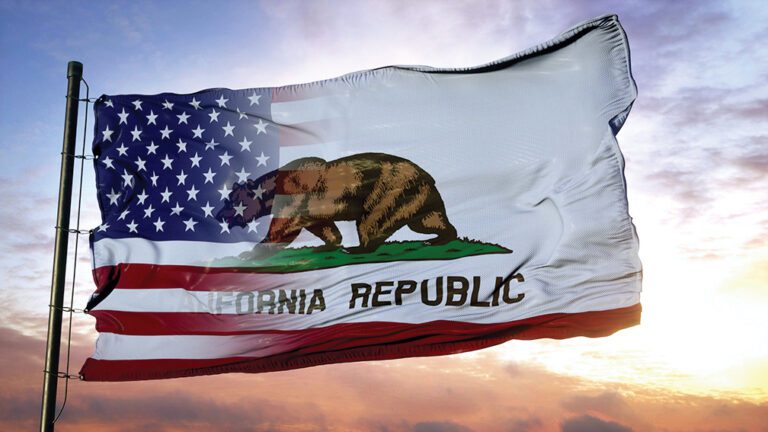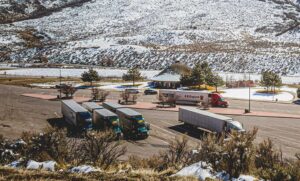One of the fun things (read “challenges”) about writing these columns is trying to figure out something that is timely and that is also of interest to you all as well as myself.
Let’s face it: Nobody likes writing or reading about things that are boring. To that end, I try to come up with topics that I think are sexy. And by “sexy” I mean things that are (1) are interesting; (2) make you think; or (3) can have a significant impact on our industry. I do not mean me wearing a satin smoking jacket as I write this article. I know, I know … that is the exact opposite of sexy.
Of course, I could always hammer out a column addressing which states issue the most CDL citations (the answer is California, then Texas, Florida, Illinois, New York, Pennsylvania, Ohio, Georgia, North Carolina and Michigan). Or I could write on the most important thing NOT to do when you get a citation in New Mexico (the answer is sign the ticket in the field, as this is an admission of guilt). Or I could write about my love for the Boston Red Sox or my Oklahoma State Cowboys (both of which have brought me joy and taught me humility and how to manage expectations).
Instead, today I decided to write a column discussing federalism and how a single state just may end up driving the regulations on the Clean Air Act and other federal laws.
What is federalism?
I’m glad you asked. In the simplest terms, “federalism” is a fancy word used to describe a system of government where some powers belong to the federal government and some powers are reserved to the states.
A quick example of federalism in action can be found in the Second Amendment. As you know, the Second Amendment provides for “the right of the people to keep and bear Arms.” That is great, and as an Amendment to the U.S. Constitution, it describes the right on a national level (federal).
However, how that right is regulated is determined by each individual state. That is why we have such differences in gun laws across the country. Think of it this way: Big government says we can keep guns, but small government tells us how that right will be regulated.
I can hear you saying, “OK, lawyer guy, why the hell are you telling me about federalism, and how does it impact our industry?”
The topic is important to trucking simply because Iowa and 18 other states have challenged the Environmental Protection Agency’s (EPA) decision to allow California to ban diesel trucks in the future. The argument claims that California’s Advanced Clean Trucks regulation is in violation of the Clean Air Act and other federal laws.
In very general terms, the way it works is that if the federal government has passed laws in a certain area (think EPA-type laws and regulations) and a state passes laws that conflict with the position taken by the federal government, federal law “trumps” the state law.
I bring this up because the EPA recently decided to grant waivers to the California Air Resources Board (CARB) that allow the board to set stricter emission rules than the federal Clean Air Act allows. In essence, this clears the way for other states to adopt California’s ban.
So, what is so bad about California’s ban?
I am all for cleaner air and reduced emissions, but California’s regulations requiring net zero emissions for most buses, vans, trucks and tractor-trailers by 2035 is unrealistic. At the present time, only 2% of the heavy-duty trucks sold are electric. Moreover, commercial vehicles have made huge strides in reducing emissions from diesel-powered engines.
In fact, Chris Spears, president and CEO of the American Trucking Associations noted, “To date, 98.5% of all emissions have been removed from our current commercial vehicle tailpipes. In fact, 60 trucks today emit what one truck emitted in 1988.”
This is an amazing reduction.
Quite simply, I think Mr. Spears, said it best when he said, “By granting California’s waiver for its so-called advanced clean trucks rule, the EPA is handing over the keys as a national regulator.” Spears further said, “This isn’t the United States of California. In order to mollify a never-satisfied fringe environmental lobby by allowing the state to proceed with these technologically infeasible rules on unworkable and unrealistic time lines, the EPA is sowing the ground for a future supply chain crisis.”
At the end of the day, I agree with Mr. Spears. This waiver is handing the keys to regulation to the state of California. Carriers that roll in California will be required to meet the state’s standards, even though those standards are not required elsewhere. This really is giving the keys away.
So, I suggest we all keep an eye on this lawsuit. The outcome will have a huge impact on our industry.
Brad Klepper is president of Interstate Trucker Ltd. and is also president of Driver’s Legal Plan, which allows member drivers access to services at discounted rates. For more information, contact him at 800-333-DRIVE (3748) or interstatetrucker.com and driverslegalplan.com.
Brad Klepper is a regular contributor to The Trucker, providing valuable insights for drivers and motor carriers. He serves as president of Drivers Legal Plan, a national law firm offering discounted CDL ticket defense to members, and Interstate Trucker, a law firm providing CDL defense with no monthly fees.








